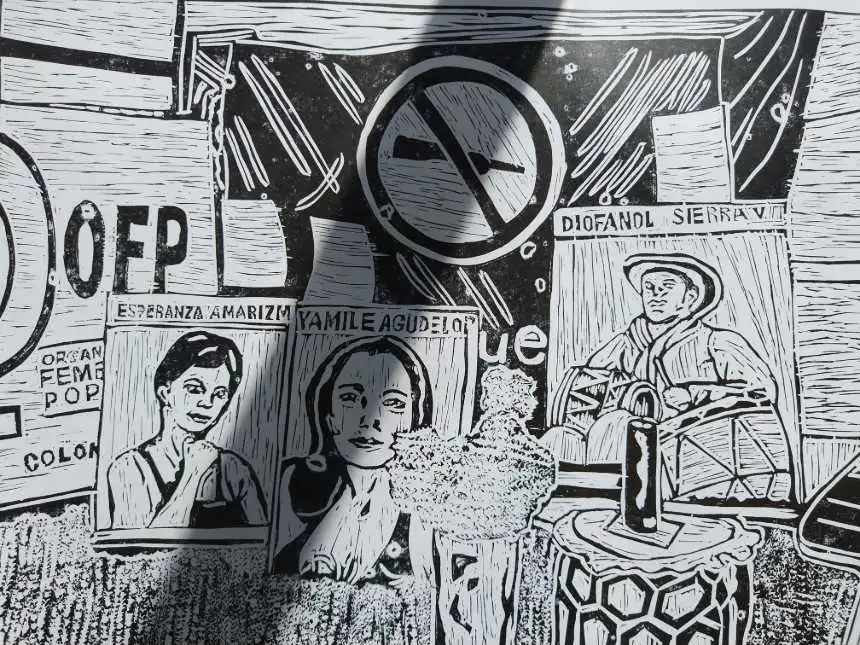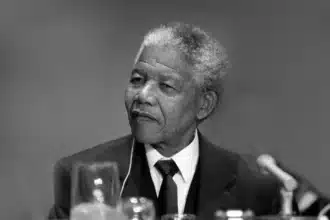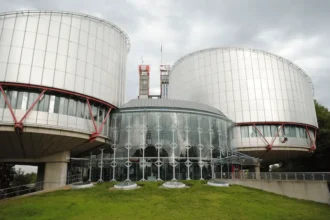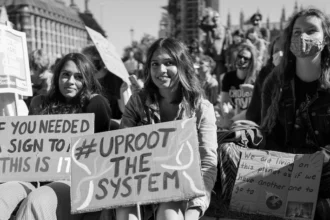The path to a peace worth its name, in Colombia and elsewhere, requires the steadfast efforts and commitment of human rights defenders who have devoted themselves to making peace signify more than simply the cessation of conflict. “Peace Advocacy” in this scenario represents a deep-seated dedication to tackling the fundamental sources of violence and injustice. This form of advocacy encapsulates a forward-thinking approach in Colombia that calls for a peace incorporating justice, state reform, social inclusion, and significant changes to the societal structure.
- Transformative Justice: Memory for a Common Future
- Democratization and State Reform: Towards a New Social Contract
- Societal Inclusion: Bridging Historical Divides
- Structural Transformation: Problematizing Neoliberalism
- Engaging Dialogue and Civic Participation: The Heart of Peace Advocacy
- Lessons Learnt and Future Challenges: Navigating the Path to Sustainable Peace amid the Challenges of the 21st century
- Conclusion: Solidifying Peace through Collective Effort
Colombian human rights defenders (HRDs) have played a crucial role in shaping the peace process, bringing to the forefront the necessity of a peace that is reflective of the country’s diverse needs and aspirations. Their efforts highlight the inseparable link between peace and human rights, arguing that sustainable peace is unattainable without addressing the systemic injustices that underpin armed conflict and that activists have shed light on for decades. Through their advocacy, these defenders have opened dialogues, challenged policies, and mobilized communities, demonstrating that peace advocacy is an essential catalyst for change.
Colombian human rights defenders have identified the state’s dual role as both a potential peacemaker and a source of conflict.
As this article unfolds, it will explore the intricate layers of peace advocacy as practiced by Colombian HRDs. Their strategies and successes illustrate a comprehensive approach to peacebuilding that transcends traditional negotiations or romanticizing believes in a unified ‘local’ idea of peace. Instead, the peace advocacy of HRDs embodies a deep-seated belief in the power of diversity of human rights to transform society.
Through their eyes, we will see a Colombia that aspires not just to end a war, but to fundamentally redefine what it means to live in peace. Beyond Colombia, we can learn from HRDs about the diversity of demands for political transformation that can be integrated under the umbrella of human rights – an important lesson vis-à-vis the multiple crises in the 21st century.
Transformative Justice: Memory for a Common Future
For Colombian HRDs, achieving peace transcends the cessation of armed conflict and critically requires the commencement of a profound societal transformation. The peace process with the former guerrilla group Revolutionary Armed Forces of Colombia – People’s Army (Spanish: Fuerzas Armadas Revolucionarias de Colombia – Ejército del Pueblo, FARC–EP ), especially the landmark 2016 agreement, is viewed by HRDs as a critical step because it has been the first of many peace accords promising rural reform, democratization, and victims’ rights as the bedrock of a durable peace.
An approach to peacebuilding that integrates peace, human rights, and state functionality is needed.
However, this path is fraught with challenges. The legacy of socio-political violence and entrenched historical-political conditions continue to undermine the quest for peace, revealing the complex dynamics that HRDs navigate in their advocacy.
They argue that without confronting these underlying issues, any peace achieved would be superficial and short-lived. Therefore, their advocacy emphasizes transformative justice—a justice that not only addresses past atrocities but also seeks to dismantle the entrenched political structures that fuel ongoing violence.
In their vision, truth-telling and the acknowledgment of historical memory play pivotal roles. By uncovering the truth about past abuses and recognizing the collective memory of communities affected by conflict, HRDs believe that societal reconciliation can be achieved. This form of justice is not about retribution but about understanding, healing, and, ultimately, restructuring society to prevent the recurrence of violence. Through their relentless advocacy, Colombian HRDs aim to lay the foundation for a peace that is inclusive, just, and reflective of the diverse voices within Colombia, marking a significant departure from the vision of many political elites that have long propagated peace as the final victory over terrorists.
Democratization and State Reform: Towards a New Social Contract
In the Colombian context, peace advocacy encompasses a fervent call for democratization and state reform, underscoring these elements as indispensable for achieving a holistic peace. Colombian HRDs have identified the state’s dual role as both a potential peacemaker and a source of conflict. This paradoxical nature of the state has led HRDs to advocate vigorously for reforms that ensure the state acts as a guarantor of peace and rights, rather than a violator thereof.
The call for democratization is a call for a deeper, more participatory form of democracy where citizens are actively involved in the decision-making processes that affect their lives. HRDs envision a state that not only respects but also promotes civic participation, transparency, and accountability, for example through strengthen local political bodies and participatory mechanisms. This vision for democratization further includes strengthening the judiciary, ensuring the protection of activists and vulnerable communities, and reforming security policies to prioritize human rights.
State reform, according to Colombian HRDs, is about restructuring the political and institutional frameworks, which have historically contributed to conflict and violence through the selective provision of rights. It involves dismantling the structures that have allowed for impunity and the perpetuation of social injustices. For peace advocacy to be effective, it must address the endemic corruption, the lack of effective mechanisms for citizen participation, and the need for a more equitable distribution of resources and opportunities.
Through their advocacy, HRDs are calling for a reimagining of the state’s role in society. They argue that sustainable peace can only be achieved when the state truly embodies the principles of democracy and justice, serving as a foundation for a peaceful, inclusive, and just society. Only a profoundly reformed state apparatus can then legitimately claim control over Colombian territories it has long surrendered to non-state armed groups. This necessitates a comprehensive approach to peacebuilding that recognizes the interconnectedness of peace, human rights, and state functionality.
Societal Inclusion: Bridging Historical Divides
Central to the efforts of Colombian HRDs in their peace advocacy is the emphasis on societal inclusion. Recognizing that the conflict in Colombia has disproportionately impacted certain groups and communities, HRDs have tirelessly worked to ensure that peace processes are inclusive and reflective of the country’s diverse social fabric. This commitment to societal inclusion is predicated on the belief that lasting peace can only be achieved when it addresses the needs and rights of all communities, especially those that have been historically marginalized.
The advocacy for societal inclusion extends beyond mere representation; it seeks to actively engage women, indigenous peoples, Afro-Colombians, LGBTQ+ individuals, and other marginalized groups in the peacebuilding process. HRDs understand that these communities bring unique perspectives and solutions to the table, based on the cultures of resistance and survival that these groups have cultivated at the margins of Colombian society . By championing their rights and voices, HRDs aim to dismantle the systemic inequalities and discrimination that linger since colonial times and hinder reconciliation.
Furthermore, societal inclusion involves breaking the culture of fear and silence that has enveloped many parts of Colombian society. HRDs advocate for a peace process that empowers victims and survivors to speak and connect, transforming them from passive recipients of justice to active participants in shaping their futures. This shift is crucial for healing and for fostering a sense of ownership and accountability among all Colombians towards the peace process.
Through their relentless pursuit of societal inclusion, Colombian HRDs are not just advocating for a peace that ends hostilities; they are advocating for a peace that rebuilds the social contract, fosters trust, and celebrates diversity, in staunch opposition to prevailing racist and sexist sentiments Their vision is for a Colombia where peace is woven into the very fabric of society, ensuring that no one is left behind in the journey towards reconciliation and unity. This approach underscores the transformative potential of peace advocacy when it is grounded in the principles of inclusivity and respect for all.
Structural Transformation: Problematizing Neoliberalism
In the heart of Colombian peace advocacy lies a profound understanding that true peace necessitates structural transformation. This vision recognizes that the roots of conflict extend deep into the socioeconomic fabric of the nation, intertwined with issues of land distribution, economic inequality, and political disenfranchisement. Human rights defenders in Colombia, therefore, frame their peace advocacy not just around ending armed confrontations as a manifestation of direct violence, but also around fundamentally altering the socio-economic conditions that give rise to conflict.
Colombian HRDs highlight the necessity of agrarian reform as a critical step towards redistributing land and resources more equitably, addressing one of the historical flashpoints of violence in Colombia. Furthermore, their advocacy calls for a re-evaluation of economic policies based on export-oriented extractivism, pushing for development models that prioritize social welfare, environmental sustainability, and the rights of indigenous and rural communities over extractive and exploitative practices.
The call for structural transformation also encompasses the demand for genuine representation and participation of all sectors of society. Colombian HRDs argue that peace is unattainable without democratic deepening that dismantles the power structures which have historically reproduced and fed on economic exploitation.
Offering land and participation rights to the rural population may break the spell of the illicit drug economy, in which alliances of warlords and local strongmen exploit social-economic precarity and immobility of an army of small farmers whose fate depends on the volatility of global resource markets. This includes challenging the neoliberal, export-oriented economic agenda that has widened social inequalities and facilitated environmental devastation, advocating for policies that promote an economy that serves the needs of the many rather than the greed of the few.
Through their peace advocacy, Colombian HRDs are essentially calling for a radical reimagination of the economic-ecological foundation of Colombia. They envision a future where peace is built on the foundations of economic and environmental justice as key ingredients to the respect for human rights, requiring a comprehensive approach that goes beyond disarmament to include profound social, economic, and political transformations. This holistic view of peace underscores the interconnectedness of human rights and peacebuilding, advocating for a Colombia where structural transformation paves the way for lasting peace.
Engaging Dialogue and Civic Participation: The Heart of Peace Advocacy
The essence of peace advocacy in Colombia, as championed by human rights defenders underscores the pivotal role of dialogue and civic participation. Recognizing the complexities and the deeply rooted causes of conflict in Colombia, HRDs advocate for an inclusive peace process that actively engages all sectors of society in meaningful dialogue.
This approach is premised on the belief that peace is not merely the absence of violence but the presence of dialogue, and a vibrant civic space where diverse voices can be heard and respected. Such vision of peace through deliberation is fundamentally different from the vision of right-wing populists that is catered to a white/mestizo, urban upper-class, and that promises a continuation of elite rule and territorial pacification through victory over armed groups.
Central to the vision of HRDs is the empowerment of communities to partake in the peacebuilding process, thereby democratizing peace itself. Colombian HRDs have been instrumental in creating platforms for dialogue that bridge the gap between the government, civil society, and marginalized groups. They emphasize the importance of listening to the voices of victims, indigenous communities, rural farmers, and other marginalized groups, whose experiences and insights are crucial for addressing the root causes of conflict and fostering reconciliation.
Moreover, civic participation in peace advocacy extends beyond consultation to include active involvement in decision-making processes. HRDs push for mechanisms that enable citizens to contribute to the shaping of policies and initiatives related to peace, justice, and social equity. This participatory approach aims to cultivate a sense of ownership and responsibility among all Colombians, reinforcing the idea that peace is a collective endeavor and can mean different things in different communities and regions.
Through fostering dialogue and enhancing civic participation, Colombian HRDs seek to build a consensus on the way forward for peace, one that acknowledges past injustices while paving the way for a shared, inclusive future. This strategy not only aids in healing the wounds of conflict but also strengthens democratic governance, ensuring that the peace process is grounded in the principles of transparency, accountability, and collective action. In essence, the heart of peace advocacy in Colombia lies in its ability to inspire a participatory democracy where dialogue and civic engagement are the main conduits for achieving a just and lasting peace.
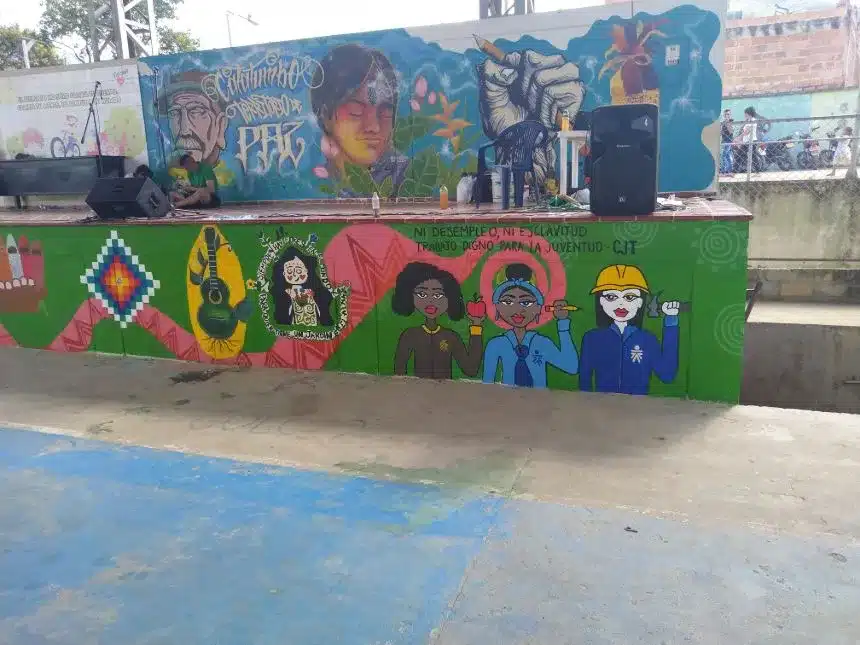
Lessons Learnt and Future Challenges: Navigating the Path to Sustainable Peace amid the Challenges of the 21st century
Eight years into the implementation of the 2016 agreement, human rights defenders now face the daunting task of making sure that the promises made translate into tangible changes on the ground. This transition from agreement to action encapsulates the crux of peace advocacy in Colombia today.
The implementation phase is fraught with obstacles, many of which resemble wider, global to human rights in the 21st century. Colombian politics and society are increasingly infested with fake news campaigns, hate discourses, and populist culture widening existing societal fissures. A highly profitable, global market of illicit drugs aids the resurgence of armed groups in many regions and stifles programs for substituting coca cultivation. Deeply entrenched elite rule slows down, or undermines, political reforms to open democracy and grant rights to hitherto marginalized groups.
Widespread frustrations with reform promises could feed anti-peace and anti-state sentiments that undermine the trust necessary to re-build the social fabric and reinforce the support for right-wing forces. These challenges underscore the fragility of peace and the constant vigilance required to sustain it. Colombian HRDs are actively engaged in monitoring the government’s commitment to the peace process, advocating for the full realization of the 2016 peace agreement’s ambitions, and addressing new sources of violence and human rights abuses that threaten to undermine peace efforts.
A key to Colombia’s future in peace lies in the ability of pro-peace forces to adapt and respond to evolving challenges. HRDs emphasize the importance of ongoing dialogue, community engagement, and international support in navigating these uncertainties. Their work extends beyond traditional advocacy, involving grassroots mobilization, education, and the creation of spaces for reconciliation and healing. This provides an important lesson for the power of human rights in the face of democratic backsliding and right-wing populism beyond Colombia: HRDs are pivotal for forging social alliances and giving a stage to societal grievances, anchoring popular imaginaries of human rights in society that, hopefully, can drown out belligerent, right-wing ideologies.
This necessitates a vision of human rights that is multiple and open to controversy, instead of linear and dogmatic. The path to sustainable peace in Colombia is a testament to the resilience and determination of its people, especially the HRDs who remain at the forefront of this journey. Their continued efforts to address both the legacy of the conflict and the emerging challenges are crucial in building a future where peace is not just a signed document, but a lived reality for all Colombians.
In this crucial moment, the role of international solidarity and support becomes more important than ever. The global community’s engagement, through diplomatic channels, international organizations, and civil society partnerships, offers vital backing for Colombia’s peace process, ensuring that the voices of HRDs are heard and their efforts amplified on the world stage.
Conclusion: Solidifying Peace through Collective Effort
In weaving together the threads of peace advocacy in Colombia, this article has traversed the multifaceted efforts of human rights defenders to secure a peace that is as diverse and complex as the society it aims to transform. Their journey, marked by challenges and achievements alike, underscores a profound commitment to a peace that goes beyond the cessation of armed conflict, encompassing justice, state reform, societal inclusion, and structural transformation.
The path ahead for Colombia, while fraught with challenges, also brims with possibilities. The resilience and tenacity of HRDs have laid a foundation upon which a sustainable and inclusive peace can be built. The capacity of HRDs to forge societal alliances and bring together different voices in a common, constructive political advocacy is decisive to anchor the strive for peace in society at large and to keep the hope for political transformation towards peace alive, despite all setbacks. However, the endeavor for peace is not the responsibility of HRDs alone. Achieving lasting peace in Colombia requires the active participation and support of the entire Colombian society, state institutions, as well as the international community.
A call to action, therefore, emerges from the heart of this discourse—a call for solidarity, engagement, and continued advocacy. The global community has a role to play in supporting Colombia’s peace efforts, offering not just moral support but also practical assistance to ensure the implementation of peace agreements and the protection of human rights. Vice versa, the world can learn from Colombian HRDs about the importance of anchoring the idea of human rights in society, such that diversity and dissensus are permitted but geared towards a common utopia of peace – this is particularly important when violence, frustrations with broken promises, and seductive right-wing ideologies risk to push society in a different direction.
As we look to the future, let us recognize that the journey toward peace is ongoing and collective. The story of peace advocacy in Colombia serves as a powerful reminder of what can be achieved when individuals come together in pursuit of a common goal. It is a call to action for all who believe in peace, justice, and human dignity to stand in solidarity with Colombian HRDs, contributing to the realization of a peaceful, just, and inclusive Colombia.
Adapted from an academic article for a wider audience, under license CC BY 4.0.


